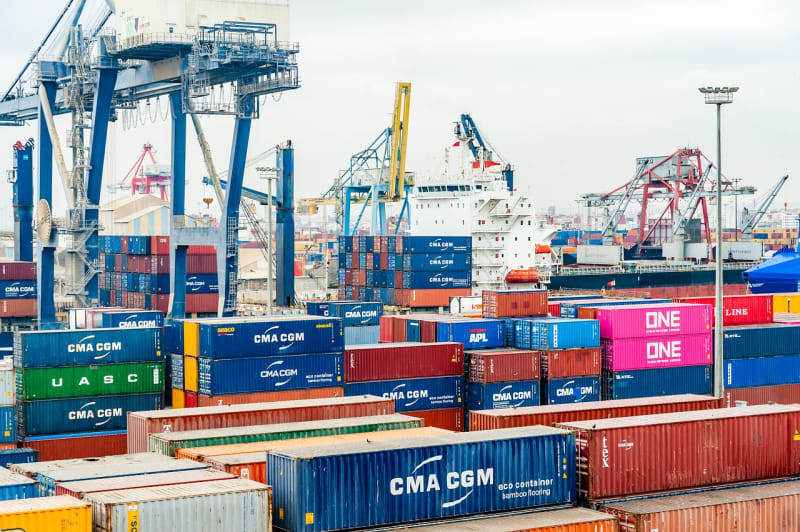Even before departing on international assignment to Asia, many expats recognize the unique opportunities presented by moving to the center of the world’s second-largest economy and the economic engine driving global trade.
While it is true that economic opportunities abound in China, most of these that will appear obvious to newly-arrived expats with an entrepreneurial spirit are in crowded spaces populated by a mix of local Chinese businesses and entrepreneurs, as well as established foreign enterprises. The best examples of these ‘mirages’ are import/export businesses.
Import/Export Industry
Expats become acutely aware of the lack of availability of certain products or services after only a short time in China, such as foodstuffs, western-sized clothing, or other consumer goods. This awareness leads some to attempt to build a business on the perceived opportunities they see in the marketplace. However, there are significant challenges in terms of building a profitable business.
Food products, for instance, face significant import restrictions and require a high level of local knowledge and connections in order to officially import these products. Upon launching in China, Marks and Spencer’s food aisles were mostly bare as their shipments were languishing in customs awaiting approval, as the appropriate wheels had not been adequately greased in order to enable timely delivery. While some expats have managed to carve out a niche for a neighborhood corner store offering imported food options, these expats are exclusively returning Chinese and they are not getting rich off their business.
For all other consumer products that don’t face restrictive import regulations, expats only need to have a look on Tao Bao – China’s version of Amazon – to find the reason to abandon any ideas of building an import business in China. Virtually any product you can find in the US or Europe can be found on Tao Bao. Vendors on the site are highly evolved and utilize a global network of Chinese expats, including overseas university students, to act as purchasers and shippers of individual products to fill orders. Although the products are more expensive than you would pay at home, there is not enough demand to justify large shipments due to the variety of cheaper local options in the vast majority of cases.
Building an export business is the single most attractive lure to new expats, given the vast marketplace that unfolds before their eyes on arrival in China. Prices seem impossibly cheap for seemingly countless consumer items, even in the retail space. Tao Bao often offers direct access to manufacturers selling overstocked or failed inspection products, or products from cancelled orders, at a price that make achieving profitability seem a foregone conclusion. The problem is that the best and majority of these apparent deals on Tao Bao are fleeting. They come and go daily and it would be exceedingly rare to find a consistent supplier of any single product. In fact, many of the lots of products being sold on Tao Bao are lots that were ‘skimmed’ at the factory by unscrupulous managers and sold on the side, or in other cases the products are high-quality fakes produced in mirror factories operating in the shadows of the legitimate factory owned by big western brands.
For some expats, access to this grey market may seem like an opportunity because the margins are the highest, but rest assured building a business in the grey market is perhaps the biggest mirage of them all, and it is also a crowded space occupied not only by opportunistic western entrepreneurs but also organized crime syndicates on both sides of the ocean.
Food and Beverage Opportunities
One space that does offer some opportunities for expats looking to build a business in China is the hospitality sector. Over the years, many expats have achieved some success opening a restaurant, pub or café in both major urban centers like Beijing or Shanghai as well as in second-tier Chinese cities. There are a lot of similarities between opening a bar or restaurant in the west and in China (including challenges), mostly because expats who open these types of businesses are primarily doing so to serve an expat market and in that respect hold a distinct competitive advantage over local Chinese entrepreneurs attempting to enter the hospitality space serving expats, in that expats have an intrinsic understanding of what other expats expect in terms of product and service. There are some examples of expats who have successfully taken their restaurants mainstream in China but most tend to sell their business when they leave.
The primary obstacle to opening a business in the hospitality space is the need to open a Chinese business which allows for the legal hiring of local staff and the issuance of official government invoices to vendors and suppliers. Depending on the jurisdiction in which you live, this can be a lengthy, expensive, and complicated process. No matter where you live, there are local consultants that will assist you with the process of setting up a business entity for a fee ranging from USD2,000 to USD5,000 (the official fees are around USD300 - 400 in most cases). While regulations vary from city to city, you may also be required to submit a time deposit to your bank that is held in trust while the business is in operation in order to cover outstanding debt should the business close in the future.
Business Partnerships
Many expats take on a local Chinese partner in their business, as it greatly simplifies the setup process as that partner is basically a guarantor of the business. However, there is a good deal of anecdotal evidence as to how this type of arrangement has led to a local partner either taking advantage of the expat or simply ripping them off and pushing them out, particularly if the business is successful.
What many expats fail to understand about doing business in China is that there is one golden rule – and that is watch your back. If you fail to do so and someone takes advantage of you, then that is your fault. Western business ethics and morality play virtually no part in doing business in China. While some semblance of trust may evolve over time between business partners, associates or otherwise, that trust is only valid so far as it is backed up by your own visible diligence in protecting your business interests. Complacency on any level is seen as a sign of weakness in business the world over. The difference in an ancient mercantile society like China is that as a foreigner you will not even benefit from the weak cultural norms of business propriety that offer little protection to local Chinese. If you need evidence of this, read Midler’s best seller Poorly Made in China, which outlines the failures of global MNCs in establishing successful Joint Ventures in China.







